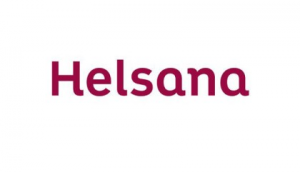The Global Health Engineering GHE group is based within the Department of Mechanical and Process Engineering at ETH. Our interdisciplinary team includes environmental engineers, economists, and social scientists working on engineering solutions for environmental and human health challenges in resource-constrained settings. Our research is guided by the UN Sustainable Development Goals (SDGs), with a focus on SDGs 6 (Clean Water and Sanitation), 11 (Sustainable Cities and Communities), and 12 (Responsible Consumption and Production).
Project backgroundThrough The Malawi Dairy Biogas Project (MDBP), Switzerland aims to distribute 10,000 biogas digesters to smallholder dairy farmers, enabling them to convert cow manure into clean biogas for cooking and bio-fertilizer for crops. This initiative reduces reliance on firewood, curbs deforestation, and mitigates methane emissions, a potent greenhouse gas. Farmers benefit from improved sanitation, higher crop yields, lower energy costs, and enhanced household health by eliminating toxic fumes from traditional cooking. The project supports Malawi's climate goals under the Paris Agreement through technology transfer and rural capacity-building for sustainable energy and agriculture and helps mitigate Switzerland's own carbon targets.
Job descriptionThe resulting product from the biodigestion process is biogas effluent or slurry, which is a nutrient-rich liquid that can be used by farmers to improve crop yields. However, the slurry poses climate challenges due to its continued release of carbon dioxide, nitrogen oxides (NOx), and methane. The current climate mitigation models for biogas offsets do not currently account for continued release from the slurry. Furthermore, the effluent is bulky, difficult to apply, and unfamiliar to farmers. The guiding research questions for this work are:
- What are the current practices and barriers to slurry utilization among farmers participating in the MDBP? (Quantitative and qualitative analysis)
- What is the methane potential related of stockpiled slurry and how do these values impact the CO2-equivalent calculations for the reactors? (Quantitative assessment and modeling)
- What are the crop and soil-related impacts of slurry use in agriculture? (Field trials at research stations and farmer level)
ProfileEssential Qualifications - Master's degree in environmental engineering, bioengineering, agricultural engineering or equivalent.
- Experience with agricultural field trials, biogas, wastewater treatment or similar biological systems.
- Strong analytical skills with laboratory experience.
- Willingness to work with farmers in Malawi for up to six months annually.
- Excellent critical thinking and problem-solving skills.
- Adaptability and resilience when research plans require modification.
- Curious mindset, positive attitude, and passion of research.
Preferred Qualifications - Interest in carbon crediting, carbon offsets, and the world of carbon finance.
- Competency in using a programming language (R, Python, Julia, JavaScript) for data cleaning, analysis, and visualisation.
We are looking for a candidate who is as committed to scientific discovery as they are to sustainable energy and agriculture.
We offerWe are a small and committed team of about ten people with a collegial culture. We value transparency, openness and believe it is important to share our knowledge with others in formats beyond just publications. We reflect on our work and constantly improve it. We believe that the world can be improved by publishing the work openly. We do not just mean results, we share data, code, and designs under permissive licence so anyone can reuse and build upon our work without restrictions.
> Working, teaching and research at ETH Zurich
We value diversity In line with our values , ETH Zurich encourages an inclusive culture. We promote equality of opportunity, value diversity and nurture a working and learning environment in which the rights and dignity of all our staff and students are respected. Visit our Equal Opportunities and Diversity website to find out how we ensure a fair and open environment that allows everyone to grow and flourish.

